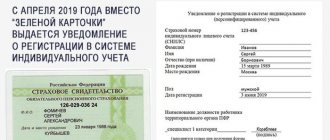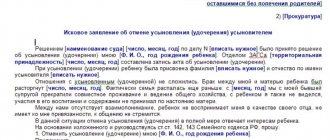One of the administrative penalties for foreigners is deportation. This procedure consists of the forced movement of a foreigner across the State Border of the Russian Federation outside of Russia. This measure applies to foreigners who have violated the norms of Russian legislation and the established rules for staying on the territory of the Russian Federation.
Administrative deportation can be ordered by a judge, and if a foreigner commits an offense upon entering Russia, by the relevant government officials. For example, border authorities.
Removal can only apply to foreigners or stateless persons. This procedure is not applicable to Russian citizens (Article 61 of the Constitution of the Russian Federation).
The concept of administrative expulsion - what does expulsion from the Russian Federation mean?
Administrative expulsion from the Russian Federation is the process of forced transfer of a foreigner or stateless person outside the country.
As a rule, this is an independent exit from the country, which is controlled by the migration service. A preventive measure in the form of administrative expulsion is prescribed by a judge in cases of administrative offenses committed by persons during their stay in Russia, and in other cases provided for by Russian legislation. Next, we will talk in detail about all the grounds for deportation, the types of administrative deportation, how deportation differs from deportation and readmission, as well as whether deportation can be reversed and where to get help when appealing a decision on administrative deportation from the Russian Federation.
To move around the page more conveniently, you can use section navigation:
- Readmission, deportation and expulsion - what's the difference?
- What is the difference between deportation and expulsion from the Russian Federation?
- What is the difference between readmission and expulsion from the country?
- Law on the expulsion of foreign citizens from the Russian Federation
- Types of administrative expulsion - independent and forced expulsion
- The procedure for expelling foreign citizens from the Russian Federation
- Deadline for expulsion of foreign citizens from the Russian Federation
- Grounds for expulsion of foreign citizens from Russia
- Court ruling on expulsion from the territory of the Russian Federation
- Execution of decisions on administrative expulsion
- Administrative expulsion, entry ban
- Expulsion of minor foreign citizens from the Russian Federation
- Cancellation of administrative deportation
- Appeal against a deportation order
- Sample appeal for expulsion
- Consequences of deportation from the Russian Federation
- Amnesty for expulsion
- How to check the expulsion of foreign citizens
- Assistance in deportation of foreign citizens
The legislative framework
The main document that regulates the deportation procedure is the Code of Administrative Offenses of the Russian Federation. So, in the Art. already mentioned above. 3.10 defines the basic criteria, and this codified normative act also contains a list of offenses for which there is a risk of expulsion from the Russian Federation:
- violation of the rules of conduct at the state border (Article 18.1);
- non-compliance with access control to the territory of the state (Article 18.4);
- committing crimes while staying within the country (Article 18.8);
- illegal use of labor of foreign workers (Article 18.10).
During the consideration of the case, the judge may resort to other legislative acts in accordance with the identified violation. For example, to Federal Law No. 114-FZ of August 15, 1996, which sets out the procedure for entering the territory of Russia.
Readmission, deportation and expulsion - concepts and differences
At first glance, deportation, administrative expulsion and readmission look like similar processes, since as a result of each, a foreign citizen must end up outside of Russia, but in reality these are completely different procedures, decisions about which are also made by different government agencies.
What is the difference between deportation and administrative expulsion - differences between expulsion and deportation
First, let's look at what deportation and administrative expulsion are. These procedures are carried out on different grounds, and the process itself is also different. So, what is the difference between the basis for both procedures:
- Forced deportation, being an administrative punishment, can only be imposed by a court order based on a court decision.
- The decision on deportation is made by an official of the migration authority of the Russian Federation or a border guard of the FSB of the Russian Federation. The court, unlike the case of deportation, does not make such a decision.
In other words, the difference between deportation and administrative deportation is that decisions are made by different bodies - administrative deportation from the country can only be ordered by a court decision, and the decision on deportation can be made by an official.
That is, forced administrative expulsion is a punishment for violating the rules of a migrant’s stay on the territory of the Russian Federation. Therefore, it is carried out only in cases where the guilt of a foreign citizen or stateless person in committing an offense is proven.
This means that before the deportation procedure, many procedural actions are carried out, on the basis of which the court subsequently makes a decision on punishment in the form of deportation from the state borders of Russia.
How does the readmission procedure differ from administrative expulsion - differences between readmission and expulsion
Despite some similarities, readmission is fundamentally different from administrative expulsion from the Russian Federation.
Firstly, readmission, unlike expulsion, is not an administrative punishment for offenses. Readmission is a procedure in which a foreign state accepts back its citizens who were illegally on the territory of the Russian Federation. Readmission is one of the mechanisms to combat illegal migration.
One of the most important conditions for readmission is the preservation and protection of the rights and interests of citizens who are subject to the procedure.
In this case, the decision on readmission is authorized to be made by the migration service, and this decision cannot be appealed.
The floor is given to lawyers
The new law of the Russian Federation defining the legal status of foreign nationals is quite categorical. But, like other legislative acts, it is subject to revision. Against this background, the conclusions of the higher body look quite interesting. Thus, one of the articles of the European Convention on Human Rights states that the expulsion of a Russian husband or wife deprives a married couple of the opportunity to lead a life together.
Human Rights Convention
Therefore, such a decision is possible only when there is all the evidence that a person committed or was preparing to commit an illegal act on the territory of the Russian Federation.
A person who has received refugee status cannot be subject to deportation. This is especially true for persons arriving from countries where active hostilities are ongoing.
How to file a complaint
If a foreign national feels that the decision to expel him violates his rights, he has the right to file a corresponding complaint with a higher authority. A complaint can be considered with a plus sign if the applicant has close relatives in the territory of the Russian Federation. Close relatives include:
- Spouse.
- Children.
- Parents.
Close relatives of the applicant must be able to confirm that they are citizens of the Russian Federation. If the person facing deportation is the sole breadwinner in the family, this fact must be indicated and be able to be proven. Sometimes a decision in favor of a foreigner is dictated by humanitarian considerations.
Appealing a deportation decision
Concluding a marriage after a decision on deportation has been made against a foreign national is not always possible. If the couple can prove that their relationship existed before the decision, they are allowed to marry.
A complaint can be filed when the foreigner has a photocopy of the decision on administrative expulsion. The deadline for filing a complaint is 10 days. If you are late, a person has the opportunity to file a complaint, but in a supervisory court. The likelihood of a positive solution to the issue is low, but you should not give up.
Also, if you are late, it is recommended to file a petition to restore the deadline for appealing. If the reason specified in the petition is considered valid, the period will be restored.
Assistance in appealing a decision
Methods of appeal
There are only 2 ways to appeal a court decision. The judicial procedure requires filing a corresponding application within 10 days from the date of receipt of the decision. The application is being considered by the court. During the investigation, it is checked to what extent justified reasons served as the basis for the decision to expel. In a complaint, a person must provide specific arguments in his favor. If they convince the court, the decision will be changed in favor of the applicant.
The administrative procedure involves submitting a corresponding application to the border service of the Russian Federation. The requirements for a complaint remain unchanged.
Border Service of the Russian Federation
Legislation regulating issues of expulsion of foreign citizens from the Russian Federation
As such, there is no single law on the expulsion of foreign citizens, since everything related to foreign citizens, including issues of administrative expulsion, is regulated by the following laws:
- Code of the Russian Federation on Administrative Offenses (COAP);
- Federal Law No. 115-FZ “On the legal status of foreign citizens in the Russian Federation”;
- Federal Law No. 114-FZ “On the procedure for leaving the Russian Federation and entering the Russian Federation”;
- Federal Law No. 410-FZ “On Amendments to the Federal Law “On Bailiffs” and Certain Legislative Acts of the Russian Federation”;
- Decree of the Government of the Russian Federation No. 382 “On placing a mark on the prohibition of entry into the Russian Federation of certain categories of foreign citizens and stateless persons”;
- Order of the Ministry of Internal Affairs of Russia and the Federal Migration Service of Russia No. 758/240 “On the organization of activities of the Ministry of Internal Affairs of the Russian Federation, the Federal Migration Service and their territorial bodies for the deportation and administrative expulsion from the Russian Federation of foreign citizens or stateless persons.”
Problems of migration in the Russian Federation
Migration is the process of moving people from one country or region to another. Foreign citizens, or temporarily residing in Russia in order to obtain citizenship, are no longer uncommon. To avoid being deported for offenses, they must comply with the laws of the host country.
However, not everyone remains in the country legally. - This is not only a loss of budget funds, since taxes are not paid for them, but also a serious threat to public order and the health of the nation. These people do not undergo medical examinations, live in unacceptable conditions and are often deceived by their employers and remain penniless on the streets.
Find out more about this category of citizens.
Types of administrative expulsion
There are two types of administrative expulsion of foreign citizens from the Russian Federation - the so-called independent expulsion and forced:
- When an expelled foreigner leaves the country's borders voluntarily, but under control. In this case, the person independently travels beyond the borders of the Russian Federation under the control of representatives of the Internal Affairs Directorate of the Ministry of Internal Affairs. If a migrant suddenly tries to ignore the decision on deportation, then he is subject to penalties and is subject to forced deportation.
- The second type, accordingly, is forced deportation from the Russian Federation. Forced supervised deportation is assigned, as a rule, to those who have committed an offense twice in a year, that is, for a recidivism. Until leaving Russia in such cases, the person punished is kept in a specialized center.
Is it possible to replace expulsion with payment of a fine?
The legislation allows replacing the punishment of departure with a monetary penalty in the case of fixing an offense for the first time, but the norm applies only to persons who have committed an administrative offense in Moscow, the Moscow region, St. Petersburg, the Leningrad region (exclusively part 3 of article 18.8 of the Code of Administrative Offenses). The sanction is imposed in accordance with the court decision.
Checking the ban on entry into Russia is carried out on the basis of an official request or on the website of the Main Directorate for Migration of the Ministry of Internal Affairs. A court order may simultaneously contain two types of punishment: a fine and expulsion. If a migrant has not repaid his financial obligations before leaving, then the corresponding sanction may be imposed on the receiving country or the unscrupulous employer.
Liability for failure to pay a fine
Refusal to pay a financial obligation entails not only forced expulsion from the country, but also the imposition of a number of penalties (depending on the court decision):
- payment of a double fine;
- community service for up to 50 hours;
- arrest up to 15 days.
The law requires mandatory payment of penalties. Refusal to fulfill obligations risks for migrants that the ban on visiting Russia may drag on for many years.
Administrative deportation and entry ban - is an entry ban imposed after deportation from the Russian Federation?
After administrative expulsion, a migrant may receive a ban on entry into the Russian Federation from a number of departments, such as the Main Directorate for Migration of the Ministry of Internal Affairs, the Ministry of Internal Affairs, the Ministry of Justice, and the FSB.
These services can prescribe either a complete ban on entry into Russia, or a Decree on the undesirability of the foreigner’s stay in the country.
There can be many reasons for enacting one of these restrictions. These are mainly the consequences of violating Russian legislation.
Some of the possible reasons:
- Exceeding the period of stay in Russia
- Two or more offenses in one year
- Falsification of documents when entering the country
Important!
After the procedure of administrative expulsion from the Russian Federation, the entry ban is valid for 5 years.
Important!
You can find out about restrictions on the entry of a foreign citizen into the territory of the Russian Federation on the official website of the Ministry of Internal Affairs of the Russian Federation. To verify such information, you will need to enter your full name, passport details, date of birth and citizenship.
Consequences of expulsion from the country
The services of a lawyer (lawyer) when canceling deportation acquire special importance. If the resolution is passed, it will make it impossible to visit the country for 5 years (Part 2 of Article 27 of Federal Law No. 114). The second unpleasant consequence that lawyers warn about is that all types of permits obtained in Russia lose their validity. In addition, a foreigner is forever deprived of the opportunity to obtain a temporary residence permit, residence permit, or citizenship. Even the services of a lawyer (attorney) will not help to circumvent this restriction.
Cancellation of administrative deportation - is it possible to appeal and cancel deportation from the Russian Federation?
In 2021, administrative deportation can be cancelled, suspended or appealed, but only in court.
The best way is to declare special circumstances or petition not to impose such a penalty on the first day of the case in court.
If the court has already decided to leave the borders of the Russian Federation, then it is necessary to file an appeal to a higher court.
The period for appealing the decision in this case is 10 days. During this period, if the complaint is filed correctly, the foreign citizen has the right not to leave Russia.
Penalties
Administrative expulsion as such does not imply payment of a fine, but can be replaced by it in the case when the violation is committed for the first time. The court, at its discretion, may oblige a foreign citizen to pay a fine in the amount of 2 to 20 thousand rubles. Such punishment can only follow for the following violations of the law:
- Illegal work and employer provision of housing to immigrants.
- Fictitious marriage.
Moreover, a fine can act as an additional punishment to expulsion when leaving on your own. Article 32.2 of the Code of Administrative Offenses states that the fine must be paid within 24 hours after the court makes its decision.
If a foreigner does not repay the debt to the state within the prescribed period, it increases by 3-5 thousand rubles. When the violator does not leave the Russian Federation on his own within 5 days, in addition to an additional fine, a forced procedure is also applied to him.
Appealing administrative deportation - how to file a complaint against deportation
After the court ruling is issued, it is possible to appeal the deportation within 10 days.
A complaint against administrative expulsion must be filed with the court that issued the order. If the appeal against deportation is drawn up correctly, the case materials are then transferred to a higher court, where the appeal hearing takes place.
Along with the application to cancel the administrative deportation, it is necessary to indicate the details of the contested decision, describe the details of the offense committed and also document the arguments in favor of canceling the administrative deportation from the Russian Federation, such as a marriage certificate with a citizen of the Russian Federation, a certificate from a university in the case of studying, or other documents evidencing in favor of repealing the decision.
All documents must be notarized. And documents of foreign origin are translated.
If a higher court rejects the application as a result of an appeal, the foreign citizen is obliged to leave Russia within the next 15 days after the decision is made.
Timing and procedure for implementation
Until a court decision is made, no one has the right to demand that you leave the country or set deadlines for carrying out this action. After an official decision is made by the person against whom the deportation request is being made, you will have 10 days to comply with it.
However, even before the start of the trial, it is possible to take a number of measures to protect your rights and extend the terms of administrative deportation:
- appeal the charges within 10 days;
- You can extend your stay in the country through an official sick leave and a certificate of poor health from a doctor.
The expulsion procedure, independent or forced, consists of the following stages:
- drawing up a protocol on the fact of an administrative offense by police or migration service officers;
- record keeping and preparation of evidence base;
- court and court decision;
- independent departure of a person in respect of whom a court decision on expulsion was made;
- placement in a special center if the deadlines for independent departure from the country are not met;
- payment of a fine;
- forced controlled deportation under escort.
The procedure for forced deportation is applied only in cases where the expelled person has not independently left or commits a repeated violation of the law within 12 months. The period for which administrative deportation is awarded depends on the severity of the offenses committed; it can range from 1 year to 5 years.
Consequences of administrative expulsion from the Russian Federation
Administrative deportation has very serious consequences for a foreign citizen or stateless person - along with deportation, the person is also subject to a ban on entry into the Russian Federation for a period of 3 to 10 years.
If an entry ban was prescribed for a period of 5 or 10 years, after this period a person can no longer apply for Russian citizenship, a residence permit, or even a temporary residence permit.
A foreigner is prohibited from entering for a period of three years if he stays on the territory of Russia for 4 months, as well as for being brought under the Code of Administrative Offenses two or more times in one year.
The reasons for deportation with a 5-year ban can be very different. Among them:
- Unexpunged criminal record in Russia or in another state
- Multiple tax evasion
- Presenting false documents when entering the country
- Exceeding the permissible period of stay on the territory of the Russian Federation
Expulsion of minors
The legislation of most countries that use administrative expulsion establishes that responsibility for administrative offenses begins at the age of 16. However, the generally accepted age of majority is 18 years. Thus, the deportation of minor foreigners is possible only if at the time of committing the administrative offenses provided for by law, they were 16 years old. If at the time of committing the offense the foreigner has not reached this age, administrative punishment is not applied to him, therefore, he cannot be expelled.
Separately, it is worth noting cases where parents of minors are expelled. Taking into account Art. Art. 8, 9 of the Convention on the Rights of the Child, which require respect for family life and the impossibility of separating parents and children, the expulsion of parents is possible only in exceptional cases. In the context of this, government authorities of countries that make relevant decisions must proceed from the real need to assign such a measure of responsibility.
Therefore, in the presence of minor children, the expulsion of parents is used only as the only possible measure to achieve the goals of such punishment. And it does not apply to minor children of expelled persons.
Amnesty for expulsion
An amnesty for foreign citizens implies the abolition of responsibility for offenses committed on Russian territory.
An amnesty removes restrictions imposed on a migrant, such as deportation, expulsion or a ban on entry. Amnesty for migrants is a bill or by-laws that are formed by authorized government bodies, for example, the Ministry of Internal Affairs or the State Duma of the Federal Assembly of the Russian Federation. For example, from the beginning of 2021 another migration amnesty is taking place. This time, among those who will receive it are foreign citizens who have violated Article 27 of the Federal Law on the rules of exit and entry into the borders of Russia.
You can find out about the availability of an amnesty on the official websites of departments.
Checking expulsion from the Russian Federation - how to check the expulsion of foreign citizens from Russia at the Ministry of Internal Affairs
You can find out about the existence of an administrative penalty in the form of deportation from the Russian Federation in the territorial body or on the official website of the Ministry of Internal Affairs.
Important!
Please note that the information on the website regarding expulsion, entry ban, deportation, etc. is for informational purposes only; it is much more reliable to obtain information by making a request at the local office of the Ministry of Internal Affairs.
What data is required to obtain information on the site:
- FULL NAME;
- gender;
- Date of Birth;
- identity document details;
- citizenship.
All fields required for verification are marked on the website with asterisks. After filling out the fields, you need to enter the code indicated on the page in the field and click “send request”.
How to find out about deportation
The resolution, which indicates the need to leave the territory of Russia, is sent to the person in respect of whom it was adopted. But a citizen does not always live at the place of registration and has access to mail, and letters do not always reach the address.
You can obtain accurate information about the existence of such a measure through the department of the Ministry of Internal Affairs by filling out a request for information. Preliminary information can be obtained through the official website of the Ministry of Internal Affairs, in the section with services. It will be necessary to fill out the provided fields, after which the system will check whether such a measure of responsibility has been applied to the person.
The information on the website of the Ministry of Internal Affairs is for informational purposes only. More accurate information can only be obtained through an officially submitted request.
Administrative deportation is a measure of responsibility that consists of forcing a person to leave the territory of Russia. Applied for violations of migration, customs, administrative legislation, as well as for the purpose of implementing international agreements. To apply it in practice, it is necessary to issue a court ruling, which can be appealed within ten days in an administrative manner.
Assistance with deportation – where can a foreign citizen turn for help?
If you have already been issued a deportation order or your case is still in the process of judicial proceedings, do not hesitate, immediately contact an immigration lawyer.
Important!
Remember that time is against you, since a limited number of days are allotted for appealing decisions, during which it is necessary not only to file a complaint about deportation or a petition to cancel the deportation, but also to collect documents that will substantiate the complaint and confirm your situation and why against you Such a penalty cannot be imposed.
Therefore, do not waste time, immediately contact a lawyer, and after receiving professional advice and a further action plan, immediately begin collecting the necessary documents.
Important!
If you need urgent help with expulsion, write to our online lawyer, he will advise you for free, answer all questions about the expulsion of a foreign citizen from the Russian Federation and tell you what needs to be done first.
Please like if you found our article about administrative expulsion from Russia useful or share information about the expulsion of foreign citizens from the Russian Federation on social networks:








